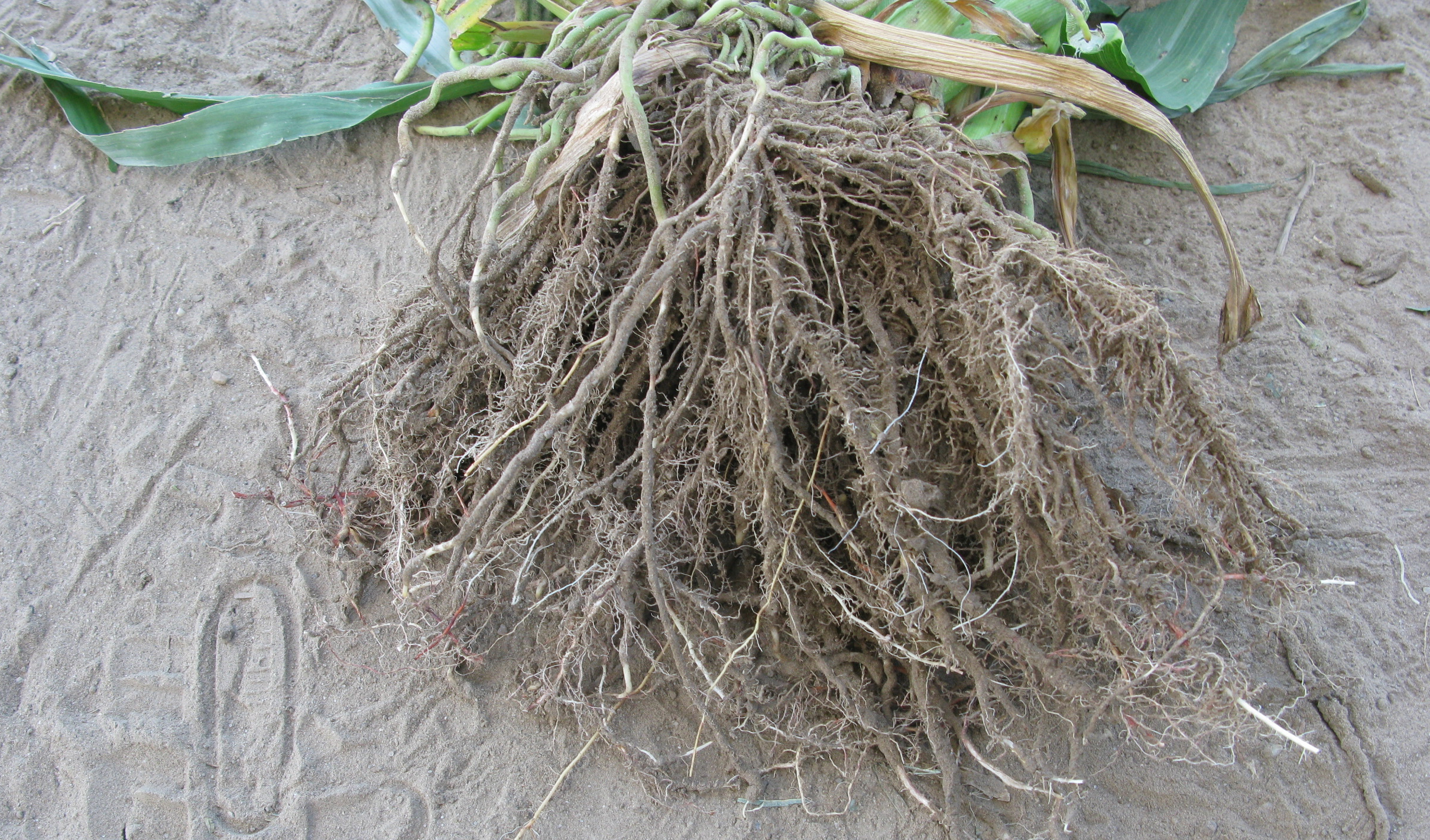
Nebraska’s Daniel Schachtman will kick off the spring Agronomy and Horticulture Seminar Series with a 3:30 p.m. Jan. 26 talk in Keim Hall, Room 150.
Schachtman, professor of agronomy and horticulture, will discuss “Exploring Soil, Root and Rhizosphere Microbiomes in Nebraska.” The talk is free and open to the public. Refreshments will be served at 3 p.m.
The talk will explore changes in the root, soil and rhizosphere microbiomes due to abiotic stress and crop varieties that may play important roles in drought tolerance and nitrogen use efficiency. Schachtman will discuss results of sorghum and corn experiments completed in different parts of Nebraska.
The seminars are free and open to the public. Each talk is in Keim Hall, Room 150, and can also be watched online at https://connect.unl.edu/FridaySeminarSeries. Learn more about the series.
The rest of the seminars will be on the following Fridays:
• Feb. 2 – Eric North, Assistant Professor of Practice, Natural Resources, University of Nebraska–Lincoln, will present “If trees could talk: The science of reading tree rings.” Trees witness and record environmental events from climate to chemical damage to human activity. Tree rings give clues to events and how those events influence annual growth. Explore the practical use of tree rings in urban environments and consulting arboriculture.
• Feb. 9 – Jonathan Larson, Assistant Extension Educator, Entomology, University of Nebraska–Lincoln, will present “Conservation of Pollinators in Turfgrass Ecosystems.” Turfgrass is an important cropping system covering more than 16 million hectares in the United States. Insecticides used by managers to maintain turf have been implicated in the decline of managed and wild pollinators. This seminar will discuss best management practices so we maintain functional and aesthetically acceptable landscapes but minimize hazard to our pollinator.
• Feb. 16 – Michelle Wander, Professor, Natural Resources and Environmental Sciences, University of Illinois, will present “Soil organic matter as a proxy for soil health: Indicators and standards.” This seminar will consider whether we have the data, knowledge and ability to use soil organic matter as an index of soil health and review the status of key indicators, inventories and assessment frameworks being used to relate management practices to changes in soil organic matter and associated soil function.
• Feb. 23 – Chuck Rice, University Distinguished Professor, Mary L. Vanier University Professorship, Agronomy, Kansas State University, will present “Agriculture in 2030: Chuck Rice perspective” Agriculture is set for a transformational change. Breakthroughs in sensors, root dynamics and the plant-soil microbiome will increase efficiency and resiliency. Cropping system designs will include efficiency and resiliency goals for the field and the landscape. Data and artificial intelligence will increase support for decision-making. The big question who will fund these advancements and are land-grant universities set to lead?
• March 2 – Lowell Sandell, Field Market Development, Valent USA, will present “PPO herbicide resistance in weedy Amaranth species.” PPO herbicide resistance in weedy Amaranth species is a less publicized, yet important topic in soybean weed control. PPO herbicides are a foundational mode of action for residual weed control in soybeans, and widely used in postemergence tank mixtures. This presentation provides an update on the status of PPO resistance in the Midwest and research on resistant Amaranth populations.
• March 9 – Brian Krienke, Assistant Extension Educator, Agronomy and Horticulture, University of Nebraska–Lincoln, will present “Utilizing crop canopy sensors and maize-N to manage nitrogen via fertigation in corn.” The elevated levels of nitrate in groundwater in Nebraska are considered a direct result of Nitrogen management in corn production. Decades of research have attempted to develop methods that increase the use efficiency of applied N, while also optimizing profit for growers. A new approach to N management will be discussed that utilizes a combination of crop canopy sensors with and without the use of a crop model to aid in decision making. Results are promising.
• March 16 – Paul Twigg, Professor, Biology, University of Nebraska at Kearney, will present “Plant research at UNK: 26 years of collaboration, reinvention, and transcription factors.” A scientific journey adapting to changes in facilities, technology, funding, new organisms, and other challenges, but always ending up with good collaborators, students, and lots of transcription factors.
• March 30 – Megan Schipanski, Assistant Professor, Soil and Crop Sciences, Colorado State University, will present “Leveraging plant diversity to manage soil water, carbon, and nitrogen in agricultural systems.” Crop and non-crop plants provide carbon inputs that can fuel belowground communities, mediate soil processes, and influence resource use efficiency. Using examples from rhizosphere, on-farm, and landscape scale research, I will discuss potential benefits and limitations of leveraging crop and cover crop diversity to improve agricultural sustainability.
• April 6 – Brian Waters, Associate Professor, Agronomy and Horticulture, University of Nebraska–Lincoln, will present “Integrating writing skills and science literacy into the CASNR curriculum.” Brian Waters will discuss examples of using writing-to-learn in Agronomy and Horticulture classes to build student communication skills while also covering discipline-specific knowledge and improving science literacy. He will also discuss how students and faculty can use the Scientific Writing Help Desk.
• April 13 – Gary Hein, Director, Doctor of Plant Health Program, University of Nebraska–Lincoln, will present “Wanted: Systems professionals to meet agriculture’s future needs.” A myriad of issues challenge the economic and environmental sustainability of plant production systems. The Doctor of Plant Health program provides a comprehensive education across disciplines to enable effective systems management and implementation of technology advances. These plant doctors provide knowledge intensive leadership required for future sustainable plant production systems.
• April 20 – David Wedin, Director, Nine-Mile Prairie & Agroforestry Research Farm, Professor, Natural Resources, University of Nebraska–Lincoln, will present “Conserving, managing and restoring grassland diversity in Lincoln’s New Prairie Corridor on Haines Branch.” Since 2016, UNL faculty and students have been assessing plant and pollinator diversity in grasslands totaling thousands of acres in the Prairie Corridor project. In this seminar the results from experiments on how diversity responds to management approaches will be presented.
For more information, go to http://agronomy.unl.edu/agronomy-and-horticulture-seminar-series.
More details at: https://go.unl.edu/z3um